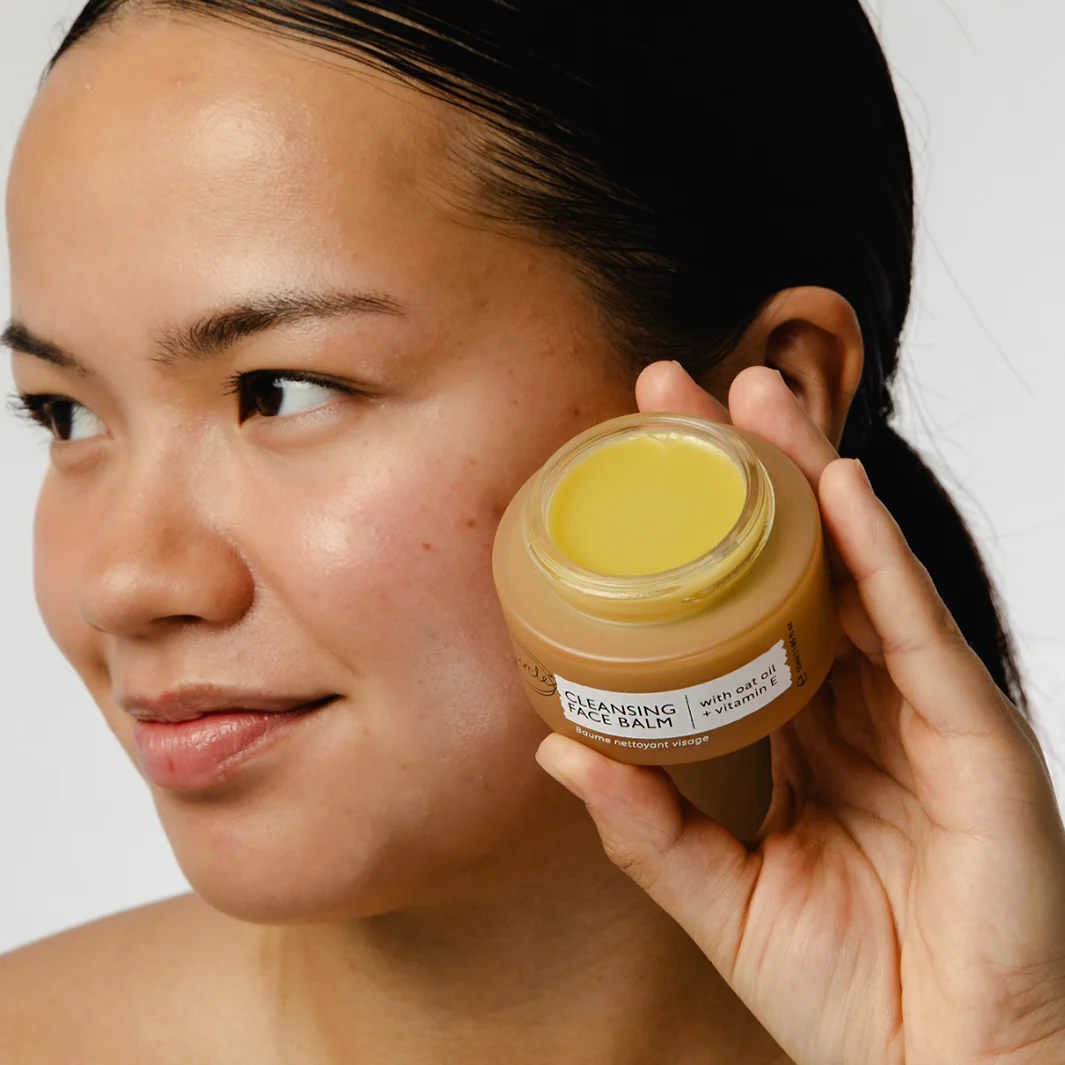Building Good Habits (how it changes lives)
![]()
This eco-friendly habit tracker can help you stay focused on building strong habits, and accomplishing life goals. Divided into 3 different sections each month.
Choose the 6 habits you would like to build into a daily routine, and 6 habits to achieve on a weekly basis, and 3 habits you would like to achieve, once a month.
![]()
Track all your goals on this handy A5 freestanding habit tracker, that you can place on your desk or bedside table. It’s also undated so you can start whenever you like. Each month includes a positive quote, to keep you motivated!
Everything at Good Tuesday is printed on recycled paper, sent in plastic-free packaging, made in the UK and beautifully designed.
Choosing recycled paper is better than FSC-certified paper, as that still requires fast-growing trees with pesticides (instead these products ‘close the loop’ and use up unwanted waste that would otherwise end up at landfill, emitting methane gas).
About Good Tuesday Recycled Office Goods
Good Tuesday is a lovely brand of recycled paper goods, founded by a woman who lives in Cornwall, but was raised in the Caribbean (hence all the bright colours!)
Everything is made in the UK, sent in plastic-free packaging.
After creating one pretty calendar and placing it on Etsy, it sold seven overnight, and the brand was born! Today it offers everything from wall planners to diaries, calendars to to-do lists. You are sure to find something you adore, to help you keep organised and inspired!
The business is based within a community of small businesses, not far from the Cornish coast. The old barn houses Good Tuesday, along with a sourdough bread bakery, coffee roaster, vegan cafe and wine expert, so the staff are well looked after!
The Benefits of Forming Good Habits
Building good habits isn’t about grand gestures or sudden transformation, it’s about choosing simple actions that make your life easier and brighter every day.
Habits shape the way we live, work and connect with others, touching every part of our daily experience. When these patterns are positive, they lay a foundation for long-term wellbeing and success.
From brushing your teeth in the morning to taking a walk after dinner, the right routines become second nature, freeing up energy and attention for what matters most.
Let’s take a closer look at some of the main benefits that come from forming good habits. Every point here speaks to something real and practical. These are changes that anyone can make, at any age or stage, with results that build over time and bring lasting rewards.
Better Physical Health
Good habits like regular exercise, eating balanced meals and getting enough sleep help the body run smoothly. Simple routines, such as drinking water first thing in the morning or stretching before bed, add up to better health outcomes.
Healthy habits lower the risk of many illnesses, keep weight in check and support heart health. When these habits are automatic, you don’t have to spend so much energy making healthy choices every single day.
Improved Mental Wellbeing
Positive habits give structure to your day and help manage stress. Whether it’s keeping a journal, practising mindfulness or setting aside time for hobbies, these routines protect your mental health.
They offer regular breaks from daily worries and help you keep perspective when life gets busy. Small acts, like making your bed or writing a to-do list, set a positive tone for the day and give you little wins to build on.
Higher Productivity
When you build habits around planning, focus and time management, you get more done with less effort. Checking your calendar each morning, breaking work into short sprints or clearing your desk at the end of the day all boost productivity.
Good work routines help you avoid distraction and keep track of progress. As these patterns become second nature, you waste less time deciding what to do next and spend more time moving forward.
Stronger Self-Discipline
Every time you repeat a positive action, you strengthen your willpower. Good habits make hard things easier, because you’re not relying on fresh motivation every day.
Over time, this consistency builds self-discipline, making it simpler to resist temptation or stay on track with personal goals. Each small success gives you confidence, showing that you can follow through and stick to your word.
Reduced Stress and Anxiety
Habits offer a sense of control when life feels uncertain. Regular routines around sleep, meals or work help reduce stress and keep anxiety at bay. When you know what’s coming next, it’s easier to handle the unexpected.
Even small routines like turning off your phone before bed or resetting your kitchen after dinner create a sense of security that helps your mind relax.
Efficient Use of Willpower
Willpower wears down during the day, but habits take over where conscious effort leaves off. If you always go for a walk after lunch or pack your bag the night before work, you don’t waste energy debating these choices.
This frees up your mental reserves for bigger decisions and helps you avoid decision fatigue. The less you rely on sheer willpower, the more you have left for moments that really count.
Positive Impact on Relationships
Habits can support kindness and connection. Making a point to check in with friends, say thank you or spend time with family helps relationships grow.
These actions, when done regularly, show you care without needing reminders. Good habits around communication and listening also build trust and make it easier to resolve conflicts.
Long-Term Achievement
Success in any field often comes down to simple routines repeated day in and day out. Whether you’re learning a new skill, saving money or working towards a promotion, steady progress relies on good habits.
Small actions add up over time, building results that last. Habits turn effort into progress, and progress into achievement.
Increased Confidence
As you stick to positive routines and see results, your self-confidence grows. You start to trust yourself to follow through, knowing you have what it takes.
This steady confidence spills over into other parts of your life, making it easier to take on new challenges and recover from setbacks.
More Free Time
By making daily tasks automatic, you save time and reduce the mental load. When you don’t have to think about every little step, you free up time for rest, hobbies or time with loved ones.
Efficient habits can shorten errands, streamline morning routines and leave you with more hours for what you enjoy most.
LSW Mind Cards for Good Habits
LSW Mind Cards were developed by a therapist to help people live with intention, and create new habits for good mental health.
Also find short self-hypnosis downloadable tracks. LSW Habit Notes is a 12-week undated tracking journal, to choose habits that can create goals, authentic to your new life.
Choose New Beneficial Lifestyle Habits
Building new habits isn’t always easy, but small changes often lead to big improvements. Sometimes we overlook the simple routines that can transform our mood, health and outlook. With the right approach, anyone can add positive habits to daily life.
Prioritise Quality Sleep
Getting enough good-quality sleep helps everything run smoothly, from your mood to your immune system. Try to set a regular bedtime each night, aiming for about seven to eight hours. Avoid screens and caffeine before bed if possible.
Over time, you’ll probably notice more energy, sharper focus and fewer minor illnesses. Good sleep underpins almost every other healthy habit, so it’s a smart place to start.
Move Your Body Daily
Physical activity doesn’t have to be intense or time-consuming. Even short walks, stretching or light exercise can improve strength and mood. Try to move in a way you enjoy, whether it’s dancing, cycling or gardening.
If gardening with animals, read our post on pet-friendly gardens.
Regular movement helps keep your heart healthy, supports strong bones and releases stress. If you sit a lot at work, stand up and stretch every hour or so.
Drink More Water
Hydration often gets overlooked, but drinking water has loads of benefits. It keeps your mind sharp and helps your body get rid of waste. Carrying a reusable water bottle can remind you to drink throughout the day.
Swap sugary drinks for water when you can, as it has no calories and is better for your teeth and skin. When you’re well-hydrated, you might notice fewer headaches and clearer thinking.
Eat Balanced, Colourful Meals
Meals packed with fruit, vegetables, whole grains and lean protein offer key nutrients your body needs. Try adding more colour to your plate with different vegetables and fruits.
Eating a variety of foods helps your gut, boosts your energy and supports your immune system. Remember to listen to your body—eat when you’re hungry, stop when you’re full and enjoy treats in moderation.
Read our recipe posts (also food safety for people and pets).
Set Aside Screens and Devices
Modern screens grab our attention, but too much time online can leave you feeling drained. If you can, put your phone away during meals or set limits on social media.
Use the extra time to talk with others, spend time outdoors or read a book. Taking breaks from screens helps rest your eyes, settle your mind and can even improve your sleep.
Build a Consistent Routine
Consistency makes healthy habits easier to stick with. Try setting a regular time for meals, exercise and sleep, even on weekends. This can help your body clock feel more stable and make changes stick over time.
Routines provide a sense of order, making it easier to add in new habits one by one without feeling overwhelmed.
Spend Time Outdoors
Natural daylight and fresh air are good for your mood and your body. Try to spend time outside every day, even if it’s just a short walk or sitting in a park. Sunlight helps your body make vitamin D, which supports bones and the immune system.
Outdoor time also offers a break from screens and encourages gentle movement. Listen for birds, notice the breeze or enjoy the changing seasons.
Connect with Others
Good relationships help us feel supported and valued. Even brief conversations or sharing a laugh can lift your mood. Make time for friends, family or community groups, in person or online.
Reaching out can help reduce stress and keep feelings of loneliness at bay. Small acts, like sending a message or joining a local group, can build connection over time.
Try Something New
Learning or trying something different can brighten your mood and keep your mind active. Whether it’s a new recipe, hobby or class, fresh activities boost confidence and keep life interesting. You don’t need to be good at everything—just enjoy the process.
Trying new things can help you discover hidden interests and meet new people.
Little Shifts for a Big Life (choice, courage, commitment)

Little Shifts for a Big Life is a wonderful book for anyone who wants to create a happier and more intentional life. In bite-size chapters, just open anywhere to find uplifting inspiration.
No one else can ensure you get the support you need. So make a vow to create a life where you are supported, whether or anyone else understands or gives you permission.
Your sleep, your diet, your sunlight, your music, your emotional support people, your quiet time, your creativity, your highest contribution.. all of those things include your willingness to make requests and be creative in doing so. What if you took responsibility for having the support you need?
Some of the Lessons!
- Embrace the shaky power of courage
- Break the rules you’ve made
- Respond instead of reacting
- Only empower what you want
- Believe you can so you can
- Focus on your purpose and nothing else
- Change yourself to change your life
- Choose the change you seek
About the Author
Nancy Perry has been teaching others how to live inspiring lives for over a decade. She’s a trained yoga teacher and also runs courses, and has a lovely blog for daily inspiration. These short posts are wise, witty and funny, and sure to make you feel better as you start your day!
She has big blonde hair, because in Texas, she says that brings you closer to God!
Love is a choice you can make again and again, to change everything.
Today is a brand new day. Making just the tiniest change, can change absolutely everything. If there’s an area where you’re feeling stuck, sad, frustrated, anxious or disappointed – you can consciously choose to start fresh in that area today.
You have no idea what those changes could be, or their depth. Yet you do need to start, for something to happen. When we start fresh, we get to carry forward the learnings and the blessings while simultaneously releasing the heaviness. You are free to grow. What tiny change will you make today to start fresh?






